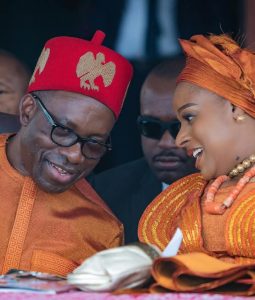Breaking Vows: Elderly Couples, Clerics, and Civil Servants Top Divorce Lists in Ondo as Economic Hardship, Domestic Violence Surge
In a disturbing social shift, courts in Ondo State are witnessing an unprecedented flood of divorce petitions, with more than 500 cases filed within the last year alone. What is even more troubling is the demographic leading this wave of marital breakdowns: elderly couples, religious leaders, and civil servants — groups once regarded as paragons of stability and role models in society.
Behind the statistics lies a grim cocktail of domestic violence, emotional trauma, unmet expectations, economic hardship, and deep-seated cultural complications. As the sacred institution of marriage buckles under pressure, stakeholders, including legal experts, religious leaders, social workers, and civil rights groups, are raising the alarm about a crisis that is eroding the foundation of family life in Ondo State.
You May Read Michelle Obama Takes Bedroom Dig at Barack Obama Amid Divorce Rumors (Video)
The Ondo State High Court and Customary Courts have been inundated with petitions from couples seeking dissolution of marriages, most citing emotional or physical abuse, irreconcilable differences, financial instability, and infidelity. Data obtained from the Family Court Division of the Ondo State High Court in Akure shows that over 200 divorce petitions involving legally married couples were filed in 2024. An additional 80 cases were received between January and March 2025, putting the state on course for another record year.
Customary courts, which handle cases from traditionally married or cohabiting couples, recorded 88 additional divorce-related disputes in 2024. Cumulatively, over 500 marriage-related legal proceedings were initiated within 12 months — and observers say many more cases go unreported or are settled informally.
YOU MAY READ 24 cases on today’s court list, 22 are divorce petitions. Just one courtroom, all in one day” – Barr Wendy
Perhaps the most surprising revelation from court records and interviews is the rising number of elderly couples — some married for over 30 years — now seeking divorce. Mrs. Akindele Abiloye, Head of the Family Court Section, expressed alarm at this demographic shift.
“It is not just young couples anymore. We now see elderly spouses, including retirees and religious leaders, filing for divorce due to longstanding grudges or late-onset domestic abuse. Many simply say, ‘I can’t take it anymore,’” she told Weekend Hope.
One such case involves a retired civil servant and his wife of 41 years. The man accused his wife of verbal abuse and emotional neglect after their children left for university. She, in turn, alleged years of being controlled financially and psychologically.
“People grow older but don’t always grow together,” Mrs. Abiloye said. “After retirement, many issues that were swept under the carpet begin to surface.”
You May Read The Emotional Journey of Annie Idibia Amidst Divorce and Public Scrutiny
The surge in divorce filings is intricately tied to a parallel rise in domestic violence across the state. The Ondo State Agency Against Gender-Based Violence (OSAA-GBV) reported handling 212 cases of domestic abuse in 2024, nearly doubling the figures from the previous two years.
Executive Secretary of the agency, Mrs. Bola Afolabi, confirmed that most victims were women, with a worrying number of incidents involving severe physical assault.
“We’re seeing a disturbing pattern where men, after abusing their spouses, quickly file for divorce to avoid criminal prosecution. It’s a new form of manipulation and legal shielding,” Afolabi noted.
She described how several victims, some with blackened eyes and fractured bones, came to the OSAA-GBV office in Akure seeking shelter and justice. The waiting rooms have become sanctuaries of grief and confusion, filled with young mothers, battered wives, and traumatized children.
Religion, deeply woven into the social fabric of Ondo society, is playing a controversial role in this unfolding drama. Many victims of domestic violence have been counseled by religious leaders to endure rather than flee or seek justice.
You May Read May Yul-Edochie’s lawyer gives update on her divorce case with Yul Edochie
“Too many women are told by pastors and imams that ‘God hates divorce,’ and that suffering in silence is a form of righteousness,” Afolabi lamented.
Yet, in the face of rising death tolls from spousal abuse and suicides, a growing number of religious centers are beginning to change their stance. Afolabi has led a state-wide campaign targeting religious institutions to educate their congregations on nonviolence and mutual respect in marriage.
“We’re not advocating for divorce. We’re advocating for safety,” she said.
At the OSAA-GBV facility in Akure, a visibly bruised 33-year-old woman cradled her infant daughter. She had fled her husband’s house the night before, after being beaten for “talking back” during a meal.
“He didn’t want me to work, but he also said I was lazy. I wasn’t allowed to visit my mother. I was isolated and scared,” she said, voice cracking.
Another victim, a school teacher, recounted how her husband and his mother assaulted her together during an argument over food expenses.
You May Read Toke Makinwa on Being Single, Childless, and Thriving at 40
“His mother said I was wasting money. He slapped me so hard my eardrum burst. I fainted and was rushed to the clinic. Two days later, he filed for divorce,” she narrated.
Many women say their abusers use court proceedings as a weapon — an attempt to rewrite the narrative and avoid accountability.
Despite efforts by the Ondo State Government to respond to the crisis, many victims still face insurmountable hurdles in accessing justice. Legal aid is limited, and the judicial process is often drawn out, costly, and re-traumatizing.
Barrister Temitope Oduwole, who volunteers with OSAA-GBV, says many women abandon cases halfway due to financial constraints or social pressure.
“We’ve had to provide transport, shelter, and feeding for some victims who are completely destitute. Without support, they’d likely return to their abusers,” she said.
Activists have called for the establishment of mobile courts to fast-track domestic violence cases, particularly in rural communities where access to formal courts is limited.
Divorce cases involving civil servants and clerics are rising at an alarming rate. These are individuals society once looked up to for moral guidance and emotional maturity. Yet, they are now frequently seen in the dock, either as victims or alleged abusers.
You May Read Why Couples Who Have More Sex Live Longer and Healthier Lives
The most heartbreaking cases involve middle-aged and elderly women who have spent decades in marriages marked by control, emotional starvation, and in some cases, repeated violence.
Mrs. Elizabeth Ayeni, a retired primary school headmistress, recently filed for divorce from her pastor husband of 38 years.
“I gave everything to the church, to the home, but I was invisible. He made me kneel and confess my sins weekly — sins I didn’t commit. At 62, I realized I deserved peace,” she said tearfully.
Beyond the statistics and courtrooms are the stories of children — many of whom are witnessing the disintegration of their families firsthand.
Social workers report increasing cases of depression, anxiety, and even aggression among children exposed to domestic violence.
You May Read Porsha Williams’ Estranged Nigerian Husband, Simon Guobadia, Detained by ICE for Deportation
“One boy, aged 8, tried to strangle his younger sister. When asked why, he said he saw his father do the same to his mother,” said child counselor Ruth Akomolafe.
Psychologists warn that unresolved trauma in children from broken homes may lead to long-term emotional instability, difficulty forming relationships, and in extreme cases, cyclical violence.
Many of the divorce cases, particularly among younger couples, cite economic hardship as the root cause. With rising inflation, food insecurity, fuel scarcity, and unemployment, marriages once built on romance and mutual dreams are now buckling under daily survival.
Civil servant Mr. Deji Salako, whose wife left him in 2023, said:
“She couldn’t handle the stress. We were eating once a day. The landlord was threatening. The kids were sick. Everything felt like a burden. We fought every night.”
Social analyst and economist, Dr. Fola Omole, pointed out that economic pressure amplifies pre-existing cracks in relationships.
You May Read Should You Accept a Married Man’s Proposal? A Moral Dilemma of Love, Integrity, and Sacrifice
“Money problems don’t cause divorce. They reveal incompatibility, poor communication, and emotional immaturity. But when people are hungry, these issues explode faster.”
Experts believe that the rising divorce and domestic violence trends in Ondo State represent a critical call to action. The response must be multifaceted — legal, educational, cultural, and economic.Stronger enforcement of domestic violence laws is necessary. Legal procedures must be streamlined, and support services — including pro bono legal aid, safe houses, and psychological support — must be expanded.Community leaders, elders, and religious figures must begin to deconstruct harmful traditions that promote endurance in abusive relationships. There must be a shift from “endure at all cost” to “live in safety.”
The newly launched Boy Child Initiative by the Ministry of Women Affairs is a promising step. Boys must be taught empathy, respect, and nonviolent communication early on. The initiative aims to groom a generation of emotionally intelligent men who can be partners, not predators.
More accessible pre-marital and post-marital counseling services should be encouraged. Awareness campaigns via radio, churches, mosques, and social media can help change attitudes toward healthy relationships and gender roles.
Financial insecurity is a massive trigger. Empowerment programs targeting women, job creation for youths, and rural development can ease some of the strain on families.
As Ondo grapples with the cascading effects of broken homes, traumatized children, and disillusioned citizens, the state stands at a crossroads. Will it embrace bold reforms to protect the vulnerable and heal its fractured families — or will silence and stigma continue to prevail?
The increasing presence of elderly women, respected clerics, and former government officials in the family court’s waiting room is a reflection of a society in flux. Old certainties are crumbling. But with that collapse comes the possibility of building something better.
A society where marriage is not a life sentence, where divorce is not a death sentence, and where safety, dignity, and peace become the true vows we all strive to uphold.





